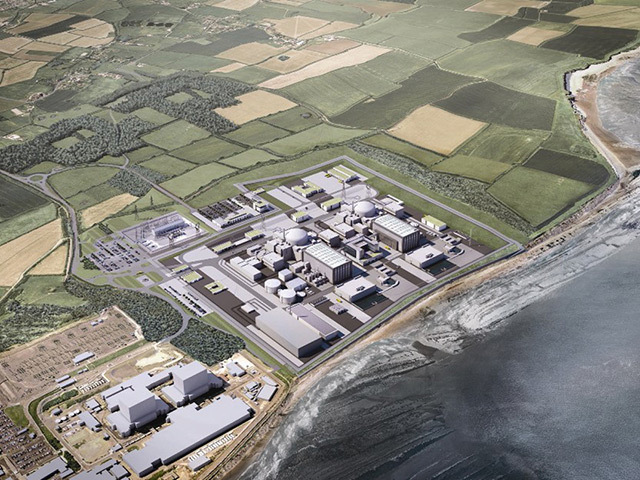
The Government has come under fire for its shock move to further delay a decision on building Hinkley Point power station, with warnings that it could be “potentially disastrous”.
Unions said jobs could now be lost and the move was not the right signal to send to potential investors following the vote to leave the European Union.
The decision to pull back from finalising the £18 billion project was being laid at the door of 10 Downing Street, although new Business and Energy Secretary Greg Clark was said to want time to study the details of the deal.
Justin Bowden, the GMB union’s national secretary for energy, told the Press Association: “Theresa May’s decision to review the go-ahead on HPC is bewildering and bonkers. After years of procrastination, what is required is decisive action not dithering and more delay.”
The Prospect union is writing to the Government calling for an urgent meeting, saying the delay was “chaotic and potentially disastrous”.
Deputy general secretary Garry Graham said: “The Government’s decision to further delay the project is incomprehensible.”
Claire Jakobsson, head of energy and environment policy at EEF, the manufacturers’ organisation, said: “Further delays in approving Hinkley C only serve to highlight the scale of this deal. We urgently need a clear energy strategy from Government about how we ensure long-term energy security of supply that is both low carbon and affordable to consumers.”
TUC general secretary Frances O’Grady said: “The Government is dithering over a major infrastructure project which would deliver thousands of quality jobs in low-carbon energy.
“This is not the right signal to send to investors after the Brexit vote. Our economy needs certainty, not vacillation.
“Of course we must ensure that any project on this scale gives good value for the taxpayer, but successive Conservative-led governments have had years to get this decision right.
“Ministers must urgently consult with everyone involved in this project, including unions, with the aim of giving Hinkley C the green light as soon as possible.”
Tom Greatrex, chief executive of the Nuclear Industry Association said: “The Government’s decision to take longer to look at the contract do not change the fundamentals – that by 2030, two
thirds of our electricity generation capacity will have retired, and we need to replace it with low carbon and reliable power for the future to improve our energy security and meet our commitments on carbon emissions targets.
“The most important thing is that the board of EDF and its investors have the finance in place to enable them to give the go ahead for the project and that is very good news. We have a strong UK supply chain which has built up its capability and has trained people so they are able to build and operate Hinkley Point C.
“We now need the new ministers to quickly endorse the decision to show they are serious about industrial strategy, building new infrastructure by securing inward investment to create our low carbon energy supplies of the future.”
Simon Walker, director general of the Institute of Directors, said: “Considering the vast scale of this project, and the high price asked for the power generated, it is only sensible for Greg
Clark to pause before making his decision.
“The IoD is a firm supporter of building new nuclear plants to generate reliable, low-carbon energy, but the Government is right to scrutinise the value of such long-term investments carefully. Our members would like to see nuclear as a big part of the energy mix in future, but they also need the Government to focus on the cost of energy bills.”
Byron Orme, IPPR research fellow, said: “Whilst a further review of the Hinkley Point C project doesn’t instil the greatest confidence in the direction of energy policy in the UK it does give the opportunity to look again at whether there are cheaper ways to get nuclear power plants built.
“One very attractive option is for the Government to take a more active role and provide direct public investment in projects. This route could shave up to £5.5 billion from the costs of the UKs nuclear programme and provide far greater value for bill-payers.”
Shadow energy secretary Barry Gardiner said the Government was in “absolute chaos”, pointing out that ministers had been telling Labour for two years they didn’t need a plan B yet at a day’s notice cancel the final signing agreement.
He reiterated his call for a taper so that if project is delayed beyond 2025 power crunch, bill payers won’t be left stuck paying premium price.
Recommended for you
